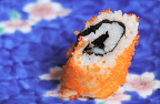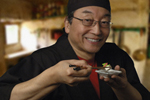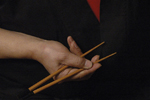 I am fascinated by origins. The wheres and hows of a thing or it’s behavior characteristics I find intriguing beyond measure. The most fascinating to me is human behavior. I also have this crazy notion that the more we understand of how we became the way we are, and where we exist in our own personal or collective continuum, we can use that information to become better than what we are today.
I am fascinated by origins. The wheres and hows of a thing or it’s behavior characteristics I find intriguing beyond measure. The most fascinating to me is human behavior. I also have this crazy notion that the more we understand of how we became the way we are, and where we exist in our own personal or collective continuum, we can use that information to become better than what we are today.
A Few Caveats:
Essentially, I’m talking about the E-word (Evolution) so if you are one of those people who believe the world is only 6000 years old, please…stop back later this week and there will be a nice recipe. The last thing I want to do is assault your beliefs.
Also, I am breaking my own rule and using one source: “The Naked Ape” by Desmond Morris who is a British zoologist. I think his “The Naked Ape” is pretty complete describing the background of man as an animal, first and foremost. I disagree with him a few minor points, but for the most part he is spot-on. This book is a great guide in all sorts of human behavior: from why we shake hands to why we wage war. I’m going to limit myself to Morris’s observations of the things humans eat and what has led us to them.
Also, I have been a vegetarian for many years now, and while I maintain this is a choice that is best for me, I cannot deny that essentially, biologically I am, and am supposed to be a omnivore.
A Penny’s Worth of Perspective:
It’s a bit difficult to condense several hundred thousand generations of the evolution of man in a few sentences. Morris does it well, but he covers it in several chapters. There is one bit of perspective that works well in a largely visual way: if you consider the history of the world, picture that as the Washington Monument. If you accept that visual, a penny on the top would represent the history of man’s evolution on the Earth. A stamp on top of the coin, would represent the time since Christ. Evolutionary-wise, you can discount the stamp. That penny is what concerns us. Man started as a nomadic tree-dwelling ape that was largely a herbivore. Man’s ancestor moved from the trees to the plains and became a nomadic carnivore. The last step for man was to become more settled, when he discovered the values of agriculture.
I’m always a little surprised that some people rankle a bit at the thought of our animal side and choose to deny that we have animal urges. Doubters need only think back to the last time someone cut you off in traffic. Remember what happened? I’m not talking about the cursing and the “one-fingered salute.” Believe it or not, that ‘s the veneer of socialization (or the lack of it.) No, what happened first was your heart rate increased; every hair stood on end; you had a rush of heat to your skin; you trembled. You just experienced the modern-day equivalent of a large animal rushing from the bush at you. We call this the “fight-or-flight reflex” and it’s one of the many animal-like reactions that are part of who we still are!
The Herbivore That We Are:
So, our arbor-dwelling ancient primate ancestors had (discounting the occasional predator, which totally ruined the day for them) a pretty easy-going existence. They stayed in tree-tops moving from place to place, gathering fruits. This desire for fruit is where we get our strong sweet tooth, and our stellar color vision for choosing the brightest fruits. Our primate ancestors also could rove about and choose the best of the fruit, and this is where our selective taste started (not to mention our shopping urge!) They also grazed more-or-less constantly, but ate smaller quantities. The caloric intake of their diet was not large, but because it was in constant supply, it didn’t matter. The herbivore has strong molars for grinding tough vegetable matter. They have a longer digestive track with not too acidic gastric juices.
At some point of our evolution, a kind of climatic catastrophe changed the food source and forced our primate ancestors out from the trees. The “garden” was gone.
So, the search for a different food source was work. Hard work. Our ancestors needed another food source that made up for the constant supply that they once had. A high caloric source could be found in other animals, but it is not like those animals would exactly sit still for their capture and subsequent devouring. As hunters (which our ancestors were now, officially) it was necessary to move with the food source, so our ancestors became ground-dwelling nomads. It was also necessary to develop cooperative behavior between individuals of our species to hunt more efficiently. This led to more social behaviors like a primitive form of language, a collective habitat, more reliance on one another…essentially the birth of us as a society and possibly the expansion of our intellect. Their diet was high in calories (thereby efficient), but rather monotonous in taste. Although our ancestors roved as they hunted, they tended to bring the food back to a home base. This is because meat takes more preparation to make it safe, health-wise and palatable, and since more time was needed, it helped to have a secure-ish area to do so. This pattern also changed the frequency that they ate. Meals were spaced out, were more organized, more elaborate. Soon, we found it was easier to gather all those beasts around the home base, instead of ranging around for them.
The carnivore that we became, changed our biology. We developed canines and incisors for tearing meat. Our digestive system shortened and the acid content of our gastric juices increased. True carnivores (like the big cats) have extremely short digestive systems with high acid content, necessary for digesting a corpse. They tend to go relatively longer periods between feedings.
The Omnivore That We Became:
This cooperative society with a roving hunting ground, yet having a home base (and now language) created a good basis for information exchange. Our ancestors found, more and more, healthy and tasty plants that could be grown near their home base. Thus, agriculture was born, and we stepped into the last, and current, phase of our diet. This last step created a huge array of variable food combinations. We had a rich source of calories in our meat and spices to make the meat less monotonous. We had a wide variety of vegetables and fruits. We had grains from our agriculture. Evolutionary-speaking, we had our cake and could eat it too. More importantly…we eventually had cake…and if that’s not progress, I don’t know what is!
Where We Are Now:
So, if you have the advantage of being in a developed nation, and have some money, basically you are in gastronomic heaven. Fruits, grains, and meat are available from most points of the globe. Again, if you money (and I realize not all of us are advantaged with this important luxury) you can have not only nutritional sustainment, but also a huge variety of foods to fit your taste. We have a wide variety of spices to emphasize food tastes. We have food technologies like frozen foods, canning, kitchen tools of all sorts to make meal preparation easier. We have woven the necessary time to prepare and enjoy our wide-spaced meals into our lifestyles and have made meals and important part of our family and society.
What We Do Now:
What do we, as modern humans do with cornucopia of available foods that so richly match our varieties of taste? One thing we humans have done, as we progressed, is to evolved our intellect as well as our ability to satisfy our tastes. Sometimes these can be in conflict with one another. Our bodies are still searching for the maximum amount of calories that our ancestor once needed to survive. However, we no longer work any portion close to what energy they expended to survive, yet food is most always a few steps away, in exactly the quantity and taste we would desire! So, our larger intellect must override that primitive impulse. We need to make more intelligent choices in our diet and override our animal impulse to eat like there was no tomorrow. After eons of making a steady, varied and tasty food source, we must now limit ourselves from those very achievements! Anyone on any kind of diet will tell you how truly hard this is!
Think of this as our next step in our evolution. After thousands of generations of becoming the most variable, smart, and socially agile species on the history on the planet, we owe it to ourselves to make (and stick to) those hard choices (and we all know what they are) that perpetuate us as individuals, a society, and as a species of animals, to our next step.
































